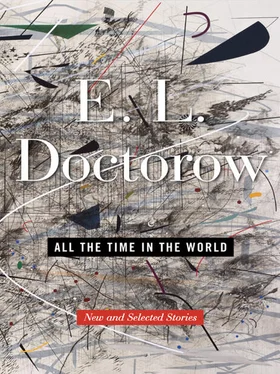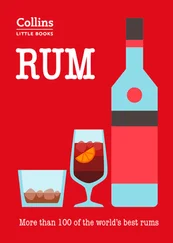YOU MAY ASK TO WHOM I think I’m talking. Suppose, for instance, you are one of those thin, undocumented Chinese men on balloon-tire bicycles delivering takeout. You would find me just as I find everything else, which is to say not quite right. I mean I am not yet characteristically impassively sad. I do not ride along on balloon tires delivering Chinese food to apartments where naked girls dance and little dogs with curly coats and glittering eyes will eat the leftovers. So even I, in my incomprehensible talking, can be seen as one more aspect of this weird realm.
In Mongolia the air is clean and cold and you see the stars at night, you actually see them. The shepherds look almost Chinese, with their herds of sheep and goats and with camels and yaks for their regal transportation. No cell phones here. You do not see shepherds walking along with cell phones at their ears past doormen giving them the once-over. They are strong men with sturdy builds and they know the kingdom of earth with its yaks and camels and goats and wild horses is their dominion. They accept the responsibility. They would not run just for the sake of running. If they had a reservoir they would not run around it, they would drop on their knees to see the night sky of stars in the water unless it froze opaque at night like everything does on the steppe. In which case they would see the moonlight inside the ice.
YOU MAY ASK HOW I pass the time when I’m not running. Alone, is my answer — as alone as when I am running. My only company is the grammarian who lives with me in my brain. If you ask me with whom am I talking, I am talking always to him or her. So I say to whom. So I don’t say lay down, I say lie down. I say would have and will not have. I don’t say you and me aren’t getting anywhere, I say you and I aren’t getting anywhere. I say you and I aren’t getting anywhere is an idiom. I say you and I aren’t getting anywhere may also be something of a metaphor, but is not a synecdoche or a metonym. When I run, too, I am not getting anywhere since I have no destination other than returning to my window across the street from the naked girl dancing. She and I are not getting anywhere either.

OTHER THAN TO THE grammarian I am never sure to whom I will be talking. I speed-dial my cell phone. I get you. You may ask to whom do I think I’m talking. I say I’m talking to you. And who may that be, you say. And then I recognize who it is, it is my mother.
You have all the time in the world, she says.
Until what?
Until something happens, Mother says.
What can happen?
If we knew, she says, and breaks the connection. I speed-dial her again and get the same assurance that I have all the time in the world on her answering machine. Now can you appreciate why I run? (To whomever I think I’m talking?)
I AM ALWAYS GLAD to have weather, though it is difficult to run past the construction sites with the cranes in the street, and past the cars with their horns of mass dissonance and their windshield wipers clacking and their headlights lighting up the rain. I am competing for the lanes between the cars with the Chinese takeout men on their balloon-tire bikes. I try the sidewalk, but the old ladies with walkers and shopping carts and their angry black women helpers are everywhere with their umbrellas threatening to poke out my eyes. And the little dogs wearing booties now, jumping around and trying to bite off the booties that keep their paws dry and so twisting up their leashes as to make the old ladies trip and fall and runners like me leap over them as if we are in an obstacle race.
I am wet and cold with rainwater dripping down my neck, but only when I reach the park can I see the rainfall in its entirety. I circle the reservoir with the sky black above me and the rain, in large walloping drops, popping like popcorn in the dark water. The Programmers splash past, not speaking today, and up ahead those long-legged women leave momentary footprints in the water as they lope along with their limp black sweaters contoured now to their newly indicated behinds.
When I leave the park the streets are streaming, and in the black morning lit by the headlights of the cars not moving, plastic bags of garbage roll over in the water and people are hurrying to work with their umbrellas blown out in the wind like suddenly sprouted trees.
Only the children are unconcerned as they slog to school in their yellow slickers with their violin cases strapped to their backs.
A SHAFT OF SUNLIGHT lights up the street from a crack in the black sky. The clouds blow off, the air is all at once warm and humid, and in a matter of minutes I’m trotting along in a brilliant blue morning. Water drips from the apartment house canopies, gurgling rivulets run along the curbstone. I feel as if I’ve risen from one element into another.
On my block, across from my building, some paper trash has spilled out of a torn plastic bag — business letters, bills, flyers. I pick up a handwritten letter on blue vellum, feeling that it was meant for me. My doorman tends to a wet dog on the leash and the dog shakes himself as I pass through my lobby. The ink of my letter runs like tears as I read, while rising to my floor, the grief of an abandoned lover. She can’t understand why he has left her, she needs to see him, come back, she says, come to me, for she still loves him, she always will, and it is all so sad, so sad, so sad, and I don’t know who threw the letter away, he after reading it or she after writing it, but I want to speed-dial whomever it is I talk to and express my gratitude, because when I get upstairs, across the street the shade is drawn on the window of the naked dancing girl and all I have ever wanted is specificity.
I just have to think that and my cell phone rings. To whom am I talking, I say. To whom do you think you’re talking, you say. I say my father. And so it is.
I have warned you about specificity, my father says. Nothing is possible but that which has happened.
And what is that which has happened?
In this case something of great sadness, my father says. There are limits to what even we can do, he says, and breaks the connection.
Despite my father’s warning, I shower and shave and dress nicely and wait for the evening hour to call on her. Downstairs I nod at my doorman, jog directly across the street, and ask her doorman to announce me. I feel my heart beating. I rise in the elevator. I reach her floor. Her door is open.
Come in, a voice says, and I enter a dimly lighted room. A large Seeing Eye German shepherd stands there. From its leather harness a leash angles up into the gloom. Patient, forbearing, the dog moves toward me one careful step at a time. I know it’s you, the voice says, and the speaker emerges from the darkness, a large old woman holding a walker to which the leash is tied. She looks familiar. Hair bunched like steel wool. A big bony jaw, a thin nose. Blind eyes bulging to see. It is the kind of ancient ugliness that connotes a past beauty. She wears a loose black knit dress with the sleeves pulled up to the elbows. Loops of pearls hang from her neck and clack against her walker. You dare to come back? she says. You dare?
I look past her to a dimly lighted dining room. In the glimmering light of a candle whose flame flares and fizzles like a star in the sky, I can see lying on the table a specifically dead girl, the contours of her body indicated in the tight wrappings of a white shroud. I can’t remember her name, but I know I once loved her. Her closed eyes suggest a mind in intense thought. You’re too late, the old woman says, you’re too late, she says with enormous satisfaction. Her triumph is affirmed by the smell of Chinese food coming from her kitchen. I go there and several mourners sitting around the kitchen table look up from the open white cardboard containers into which they are dipping their chopsticks. For a moment I think I know exactly that which has happened. But then over the heads of the mourners at their Chinese food and through the kitchen window that looks out across a dark side street I see in a lighted window a naked girl dancing.
Читать дальше













